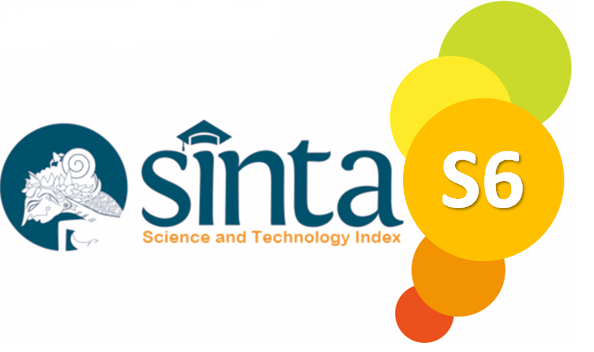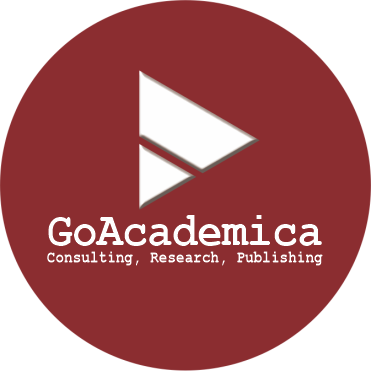A Development HUMAN RESOURCE DEVELOPMENT IN HALAL TOURISM: A CASE STUDY OF THE ISLAMIC TOURIST DESTINATION OF SAPURO TOMB IN PEKALONGAN
Abstract
This research intends to analyze Human Resource Development
in Halal Tourism: Case Study of Islamic Tourism Destinations in
Indonesia. This research is library research with a qualitative
approach. The data sources used in this research come from
various literature journal articles that are relevant to the research
topic. The data analysis method used is content analysis of the
literature sources used in the research. From this research it is
concluded that human resources have the potential contained
within humans to realize their role as adaptive and transformative
social beings who are able to manage themselves and all the
potential contained in nature towards achieving a prosperous life
in a balanced and sustainable order. Human resources are a
process of utilizing humans as workers in a humane manner, so
that their physical and psychological potential functions optimally
to achieve organizational goals. Tourism in Indonesia is a place
that has good prospects. With this, Indonesia needs to increase its
capacity to develop management to attract more domestic and
foreign tourists. The management itself also requires good human
resources so that it takes from the existing workforce to increase
halal tourism business actors in various regions of Indonesia. In
general, halal tourism is a tourist attraction that has special rules
that meet the provisions of Islamic law, such as facilities and
services. This halal tourism aims to make a tourist destination
friendly for Muslim tourists but can still be enjoyed by nonMuslim tourists.
References
Aeni, F. N. (2021). Strategi Pengembangan Objek Daya Tarik Wisata Religi Makam
Habib Ahmad Sapuro Di Kota Pekalongan. Skripsi Fakultas Dakwah Dan
Komunikasi.
Arif, M. (2018). Analisis Rekrutmen dan Penempatan Kerja terhadap Kinerja
Karyawan pada Hotel Oase. Jurnal Al-Hikmah:, Vol. 15 (1, 42–46.
Almuhrzi, H. (2020). Islamic tourism: management of travel destinations. In Journal of
Heritage Tourism (Vol. 15, Issue 4).
https://doi.org/10.1080/1743873x.2019.1658351
Ashoer, M., Revida, E., Dewi, idah kusuma, Simarmata, marulam M., Nasrullah,
Mistriani, N., Samosir, R. S., Purba, S., Ishlahudin, Meganingratna, A.,
Permadi, lalu A., Purba, B., Murdana, I. M., & Simarmata, H. M. P. (2021).
Ekonomi Pariwisata. In Suparyanto dan Rosad (2015 (Vol. 5, Issue 3).
Basyariah, N. (2021). Konsep Pariwisata Halal Perspektif Ekonomi Islam. Youth &
Islamic Economic, 2(01s), 1–6.
Bukit, B., Malusa, T., & Rahmat, A. (2016). Pengembangan Sumber Daya Manusia. Teori,
Dimensi Pengukuran, dan Implementasi dalam Organisasi (Vol. 15, Issue 2).
Buku pariwisata halal MUI.pdf. (n.d.).
Presilawati, F., Nuzulman, N., Surya Fatma, S., & Maidita, S. (2022). Pengembangan
Objek Pariwisata Halal Melalui Sumber Daya Manusia Di Banda Aceh. JSI:
Jurnal Saudagar Indonesia, 1(1), 28–40. https://doi.org/10.37598/jsi.v1i1.1319
R Rukmana, A., & Kurniawan Purnomo, A. (2023). Analisis Potensi Pengembangan
Wisata Halal sebagai Lapangan Baru untuk Peningkatan Ekonomi
Masyarakat Desa Kendan Kecamatan Nagreg Kabupaten Bandung. Remik,
(2), 907–914. https://doi.org/10.33395/remik.v7i2.12251
Riadhussyah, M. (2020). Pengembangan Sumber Daya Manusia di Bidang Wisata
Halal dalam Menghadapi Revolusi Industri 4.0. Jurnal MSDA (Manajemen
Sumber Daya Aparatur), 8(1). https://doi.org/10.33701/jmsda.v8i1.1164
Soleman, R. (2023). Strategi Pengembangan Halal Tourism And Human
Development di Indonesia Melalui Pendekatan Competitive Advantage.
Jurnal Ekonomi Dan Bisnis Islam (JEBI), 3(1).
https://doi.org/10.56013/jebi.v3i1.2002
Sugiyono. (2020). Metodologi Penelitian Kualitatif. In Metodologi Penelitian
Kualitatif. In Rake Sarasin (Issue March).
https://scholar.google.com/citations?user=O-B3eJYAAAAJ&hl=en
Surur Fadhil. (2020). Wisata Halal; Konsep dan Aplikasi. In Alauddin University Press.
Syits Qory, Syifa Ulya, Wina Royani, Y. D. (2021). DESTINASI PARIWISATA HALAL
DI KOTA BANDUNG. 1(1), 100–106.
Yono, F. (2020). Pengelolaan Destinasi Pariwisata. In Paper Knowledge . Toward a Media
History of Documents (Issue March).
https://books.google.com/books?hl=en&lr=&id=OTQhEAAAQBAJ&oi=fnd
&pg=PA37&dq=digitalisasi+surat+menyurat&ots=6aq1OMflLU&sig=rbfbjbn
BzHIpbY9vn1s-IdKqvsI



















